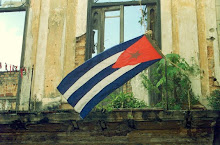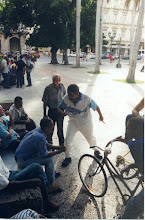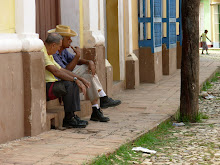In this new paper, Reforming Cuban Agriculture: Unfinished Business (pdf), I try to sort out the history and the current issues.
Since this paper went to press, there has been a development
involving the land grants. New laws and
regulations allow larger parcels of land to be distributed (previously up to 40
hectares, now 67). Also, housing can be
built on the land, which is granted in usufruct, sort of a no-cost lease. The maximum term remains 10 years for individuals,
25 for cooperatives or other legal entities.
The full text is at the Gaceta Oficial, October 22, 2012 issue; since that site is
hard to use, a partial text is copied here. Granma stories here
and here. AP story here.
The Granma story reports that since 2008, 1.523 million hectares of
idle state lands have been distributed in these grants, 172,000 to individuals
and 2,200 to cooperatives and other legal entities.






No comments:
Post a Comment